i4J Updates

Introduction to UX4Justice’s Ethical Tech Design Framework
The UX4Justice Ethical Tech Design Framework prioritizes ease of use, understanding, and well-being, to drive responsible innovation that improves access to justice.
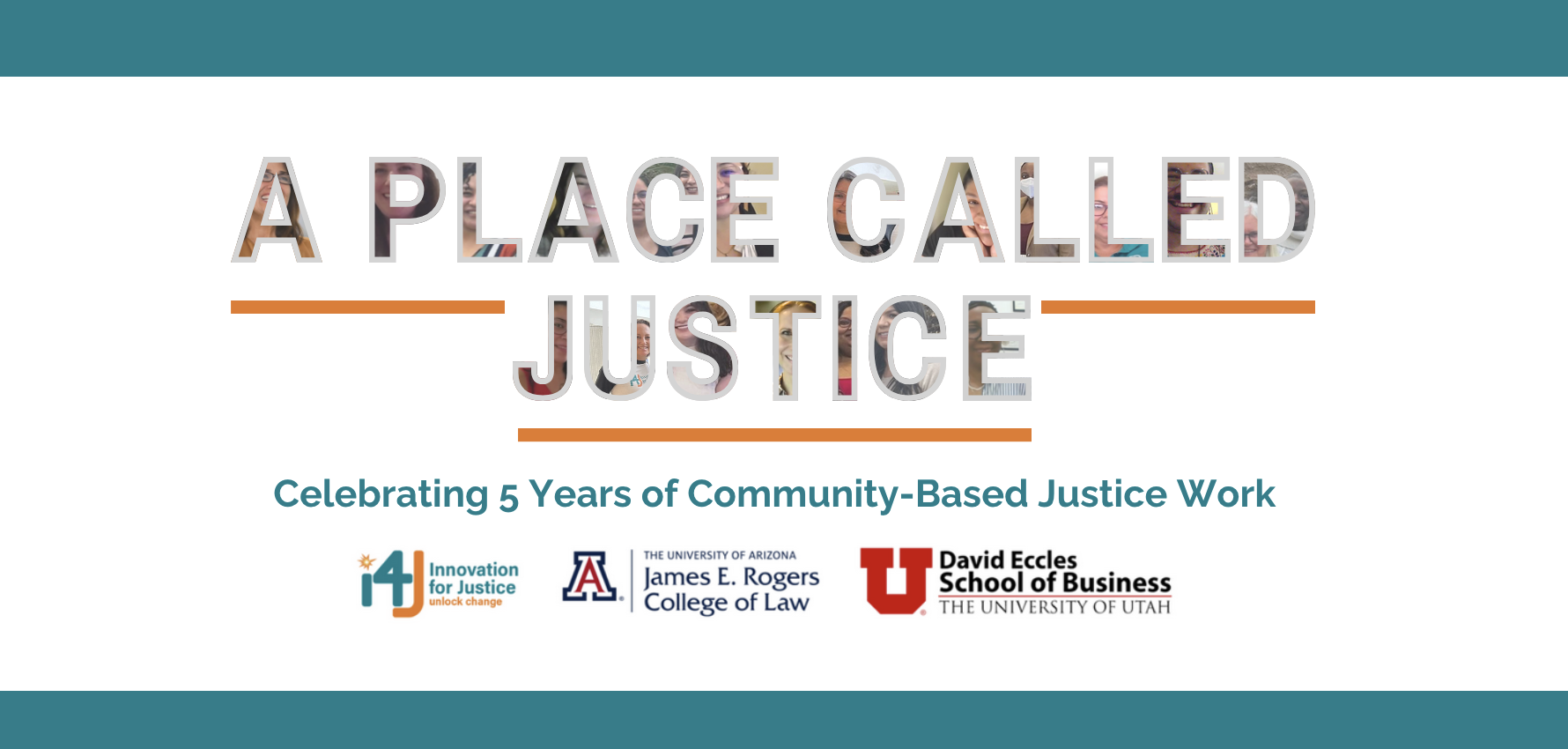
PRESS RELEASE: Multi-State Training Launch Marks Five Years of Community-Based Justice Work
Standing on the shoulders of decades of legal empowerment work by the Global Majority, i4J is proud to commemorate five years in its campaign to advance community-based justice work. This anniversary aligns with a parallel celebration: i4J’s launch of four simultaneous community-based justice worker cohorts in the Arizona and Utah.
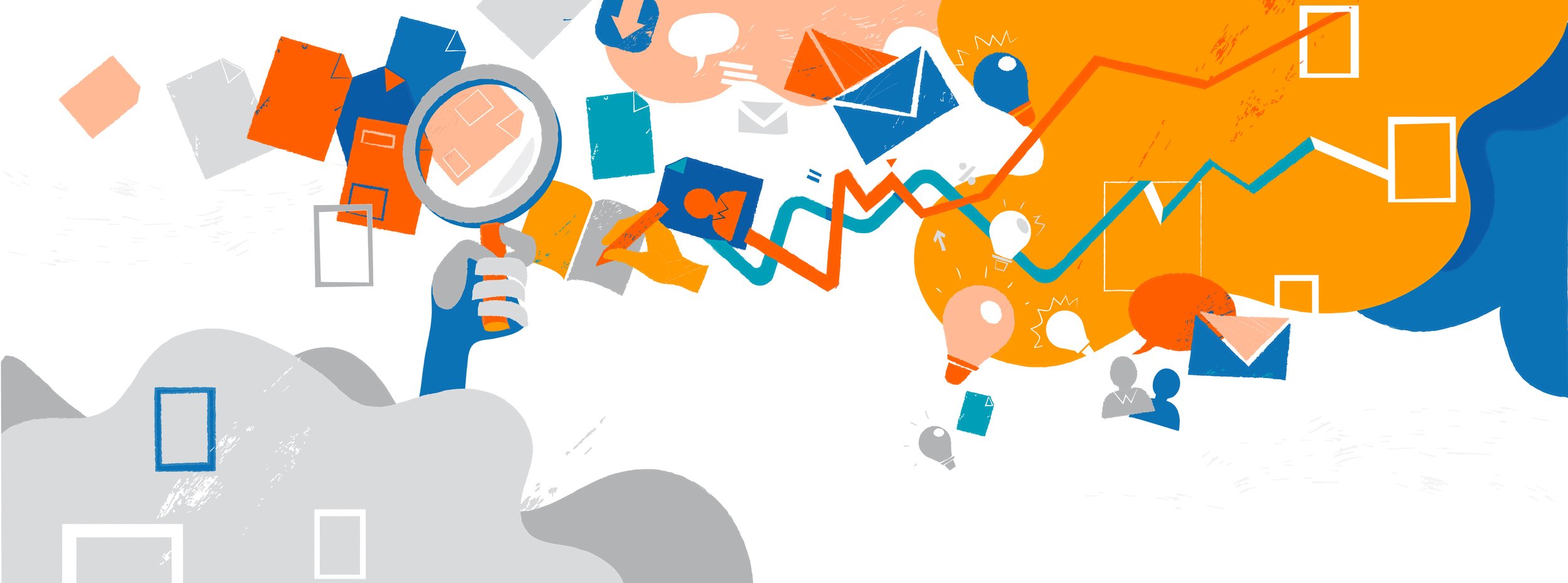
Designing for Scarcity is Designing for Survivors
Legal technologies can help alleviate the civil justice crisis and account for the psychology of scarcity with the help of human-centered design, a problem-solving technique that puts real people at the center of the design and development process.
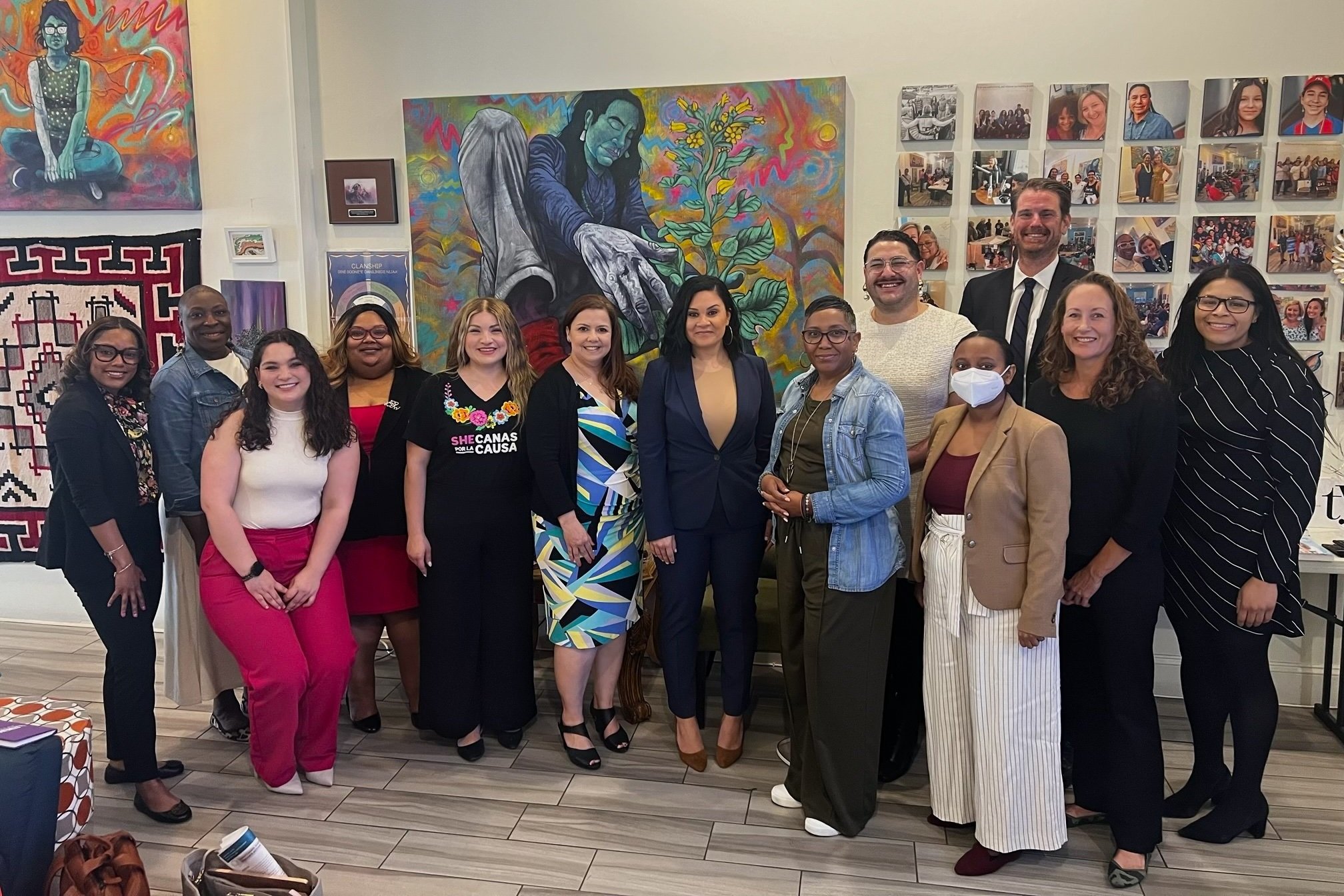
Innovation for Justice Training 37 New Legal Advocates in Arizona this Spring
For the past five years, i4J has been at the forefront of designing service models that leverage unauthorized practice of law (UPL) reform. i4J's work is part of a growing movement across the US to empower “community-based justice workers” or advocates at community-based organizations with the training and authorization to provide limited-scope legal advice in the course of their current work. This spring, i4J is expanding on this work to train 37 new community-based justice workers in Arizona: 28 Housing Stability Legal Advocates, 8 Domestic Violence Legal Advocates, and 1 cross-trained advocate.
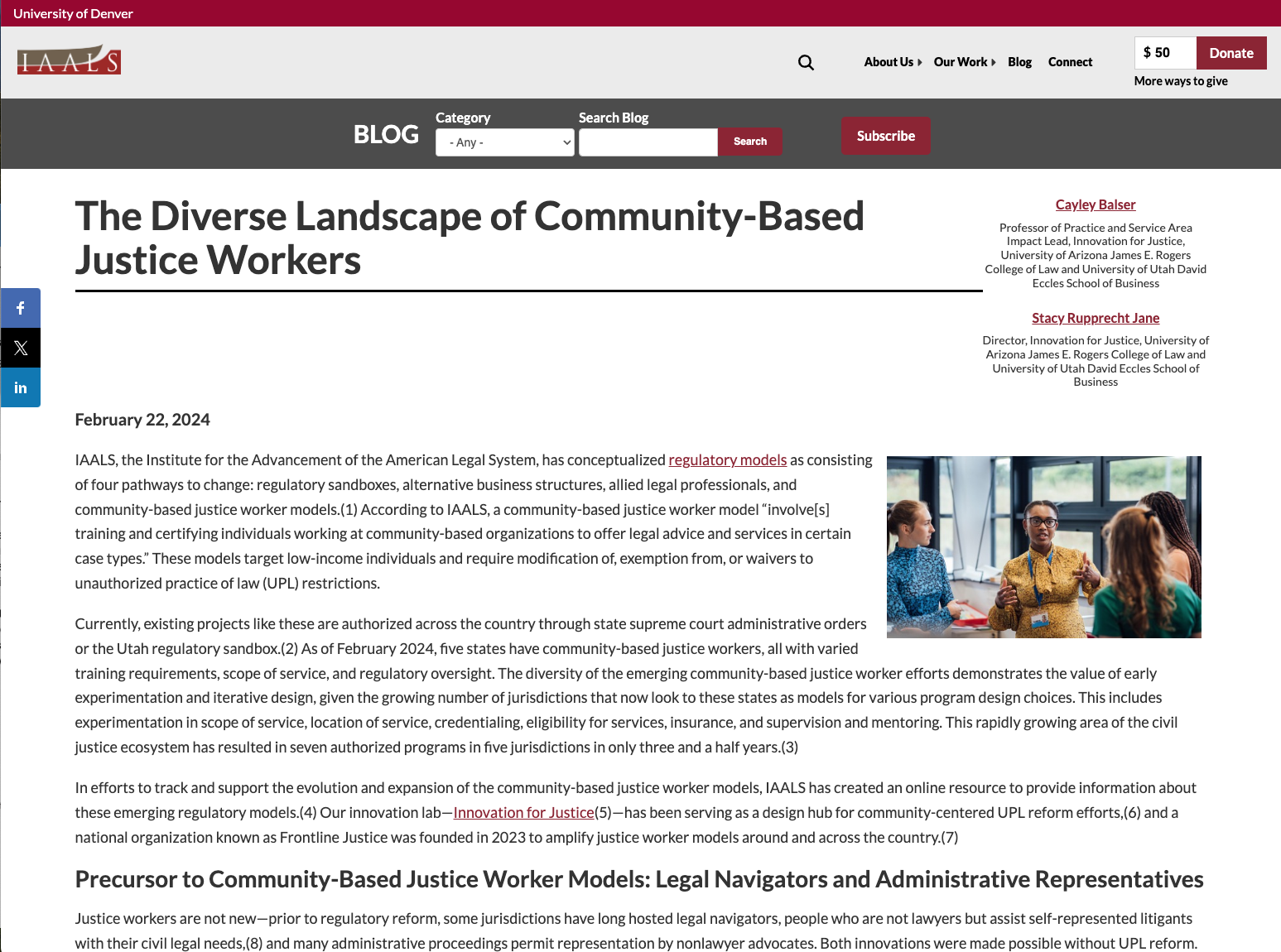
The Diverse Landscape of Community-Based Justice Workers
Cayley Balser, Innovation for Justice (i4J) Professor of Practice and Service Impact Area Lead, and Stacy Jane, i4J Director, wrote an article called The Diverse Landscape of Community-Based Justice Workers, which was published by IAALS, the Institute for the Advancement of the American Legal System, on February 22, 2024. You can read the full article now on the IAALS blog.
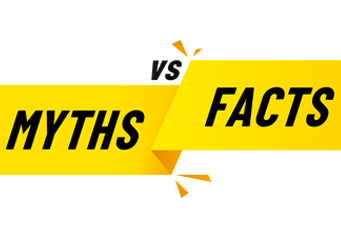
Assumption Busting in UPL Reform
ASSUMPTION: Only lawyers can give legal advice.
BUSTED: When we assume only lawyers can give legal advice, we leave many people, like survivors of domestic violence, with nothing. When we prioritize new and innovative service models—like UPL reform—we increase access to justice and connect more people to legal help.
Most survivors of domestic violence don’t have access to legal help.
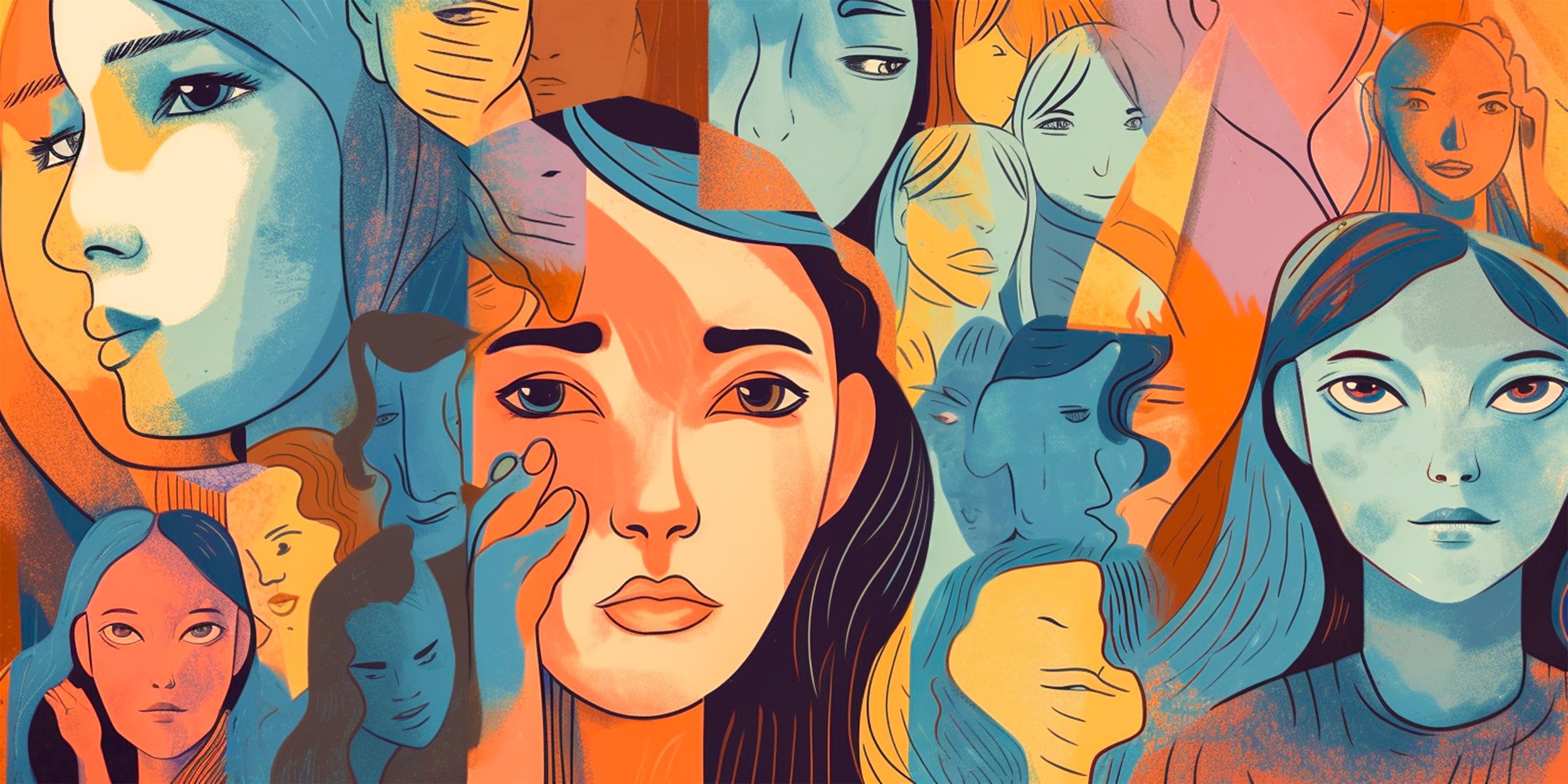
Trauma-Informed Practices at Innovation for Justice (i4J)
In recent years, “trauma” and “trauma-informed” have become buzzwords across disciplines and professions, garnering the attention of academics, professionals, and practitioners. This has led to a variety of meanings and applications of trauma-informed practices in various industries. Emerging scholarship shows a desire and necessity for trauma-informed practices to be implemented within higher education settings, including law schools. i4J is committed to making sure that “trauma-informed” is not a buzzword, but is an intentional, action-based, responsive, and reflective practice within our classrooms and communities throughout our research and design processes.
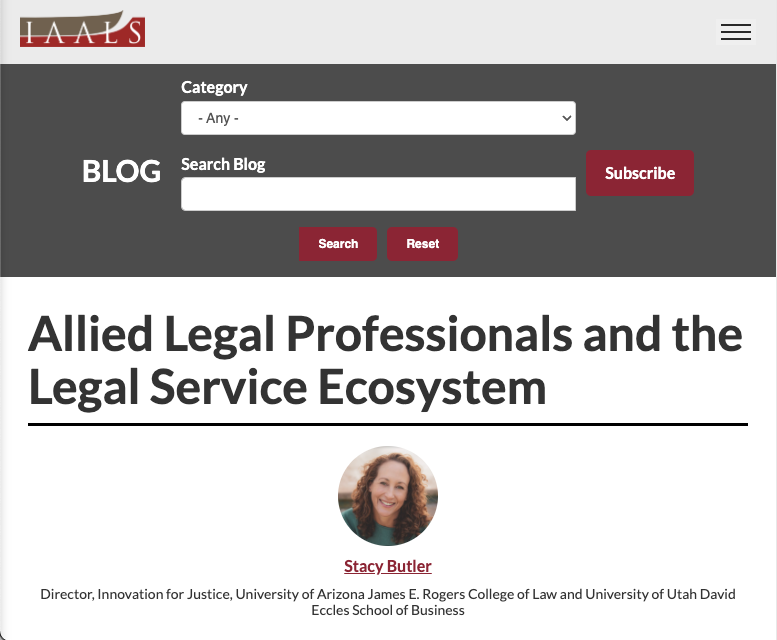
Allied Legal Professionals and the Legal Service Ecosystem
Stacy Butler, Director of Innovation for Justice, wrote an article on Allied Legal Professionals and the Legal Service Ecosystem that was published today by the Institute for the Advancement of the American Legal System (IAALS).

Regulatory Reform as a Tool to Bridge the Justice Gap
It’s that time of year again; the school year has started and students are busy reading, writing, and researching as they return to their studies after summer break. A new cohort of i4J students have been welcomed into the fold and have started working to help i4J make an impact in the civil justice system. Since 2018, i4J has been on the cutting edge of innovation by designing and testing disruptive solutions in several civil justice systems. Among these solutions, i4J has been a leader in the the regulatory reform movement by launching a Licensed Legal Advocate (LLA) program empowering non-lawyer advocates to provide limited-scope legal advice to domestic violence survivors in Arizona and Medical Debt Legal Advocate (MDLA) programs empowering non-lawyer advocates to give limited-scope legal advice to those experiencing medical debt in Utah.
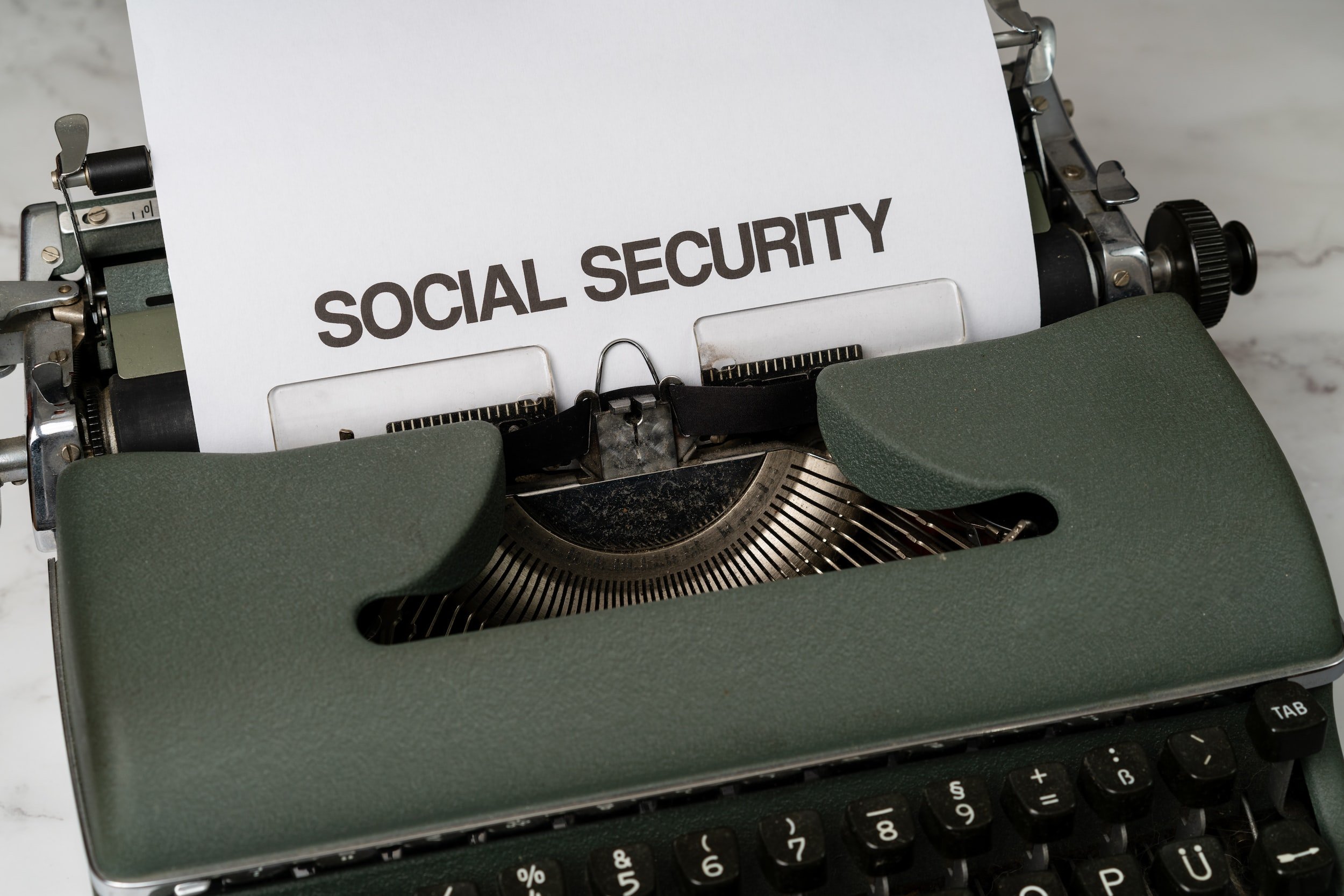
Social Security Disability Applications & the Ripple Effects of Access to Justice Challenges
Each year, many people are rejected from obtaining social security disability insurance (“SSDI”). Many of these SSDI applicants are eligible for these benefits, but may have run into a number of road blocks, including not being able to fill out the application correctly. Getting an application rejected can be detrimental, as it may be a long time before someone can submit a corrected application.

